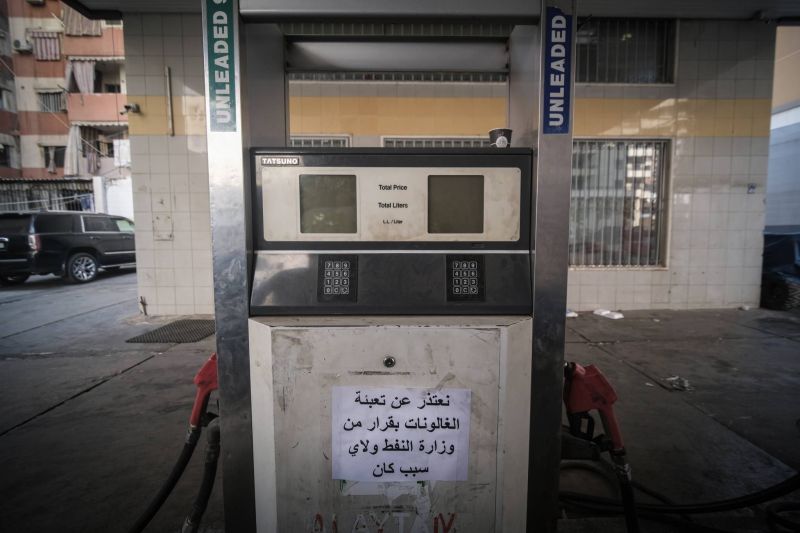
Many gas stations have closed amid a standoff in pricing between fuel importers and the Energy Ministry. (Credit: João Sousa/L’Orient Today)
BEIRUT — Fuel importers are refusing to distribute their stocks to gas stations amid a standoff over pricing with the Energy Ministry after confusion ensued from the central bank’s decision to abruptly end its fuel subsidy scheme.
The General Directorate of Oil under the ministry has demanded that importers deliver their existing inventory to gas stations, saying it had been purchased at the subsidized rate of LL3,900 lira to the US dollar, before Banque du Liban announced on Wednesday that it is is starting to provide dollars to importers only at the parallel market rate. The bank had formerly sold importers dollars to cover 100 percent of the cost of their purchases at the so-called lollar rate of LL3,900.
However, George Fayad, who heads the petroleum importers companies association, told L’Orient Today that Customs had inspected the fuel currently in the companies’ inventory yesterday morning, and that they were told the central bank would offer the companies US dollars for the stocks at the market rate instead of the subsidized rate. He said delivering the fuel to stations is impossible in this case.
“We cannot sell those quantities unless at the price decided by the central bank,” he said, referring to the parallel market rate, which is currently about LL20,500 to the dollar. Therefore, the oil importers are waiting for the Energy Ministry, which is tasked with setting fuel costs, to release an updated list of prices based on the market exchange rate before they sell their inventory to stations.
In response to the General Directorate’s order to sell their stocks at the LL3,900 rate, he said, “Let them bring us dollars at this price and we’ll deliver.”
Representatives of the Energy Ministry were not immediately available for comment. A BDL spokesperson was unable to comment on oil imports.
If fuel is sold to gas stations at the parallel exchange rate, prices at the pump may jump by as much as five times or more.
Talks are reportedly underway with the Central Bank, the Energy Ministry and oil companies to come to an agreement on the conditions governing fuel sales going forward. Meanwhile, confusion about the future of prices has led most gas stations across the country to close, while hourslong queues are forming at the few establishments still open. George Brax, the gas station owners syndicate’ spokesperson, on Friday called on politicians and BDL Gov. Riad Salameh to agree on the fate of fuel subsidies before fuel stocks run out at stations across the country.
President Michel Aoun called for an “extraordinary” meeting of the cabinet to discuss the fuel situation, but caretaker Premier Hassan Diab has rejected the request, saying his caretaker government’s powers are limited to conducting day-to-day business by the Constitution.
As Lebanon’s economic crisis deepens, the central bank’s reserves have reached a critical threshold, and over the past several months it has been ending subsidies on essential goods that had been implemented to help residents cope with the crisis shortly after its onset in mid-2019. Banque du Liban recently released a list of more than 1,500 over-the-counter drug products it would no longer subsidize, which also led to confusion over pricing and left pharmacy shelves barren, prompting many of them to go on strike.